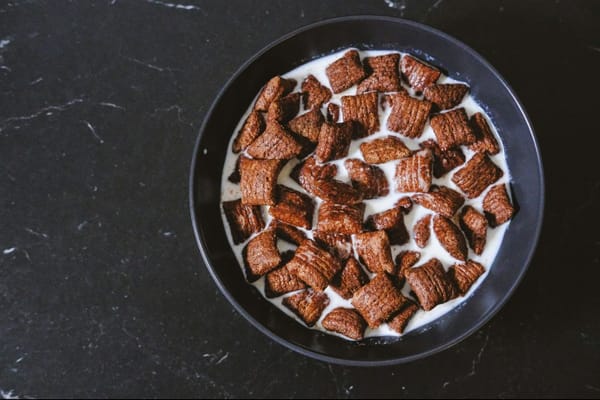Extremely premature infants face numerous health challenges, with their underdeveloped gut microbiomes playing a crucial role. Recent research has shed light on how probiotic supplementation can positively impact these delicate ecosystems, potentially improving outcomes for our tiniest patients.
Key takeaways:
• Probiotics significantly alter gut microbiome composition in preemies
• Bifidobacterium and Lactobacillus strains show the most promise
• Probiotic effects vary based on strain, dose, and timing
• More research needed to optimize probiotic interventions
The preemie gut: A microbial frontier
The gut microbiome of extremely preterm infants is a world apart from that of full-term babies. Born before their digestive systems are fully developed, these tiny warriors start life with an immature and unstable microbial community. This leaves them vulnerable to potentially life-threatening conditions like necrotizing enterocolitis (NEC) and sepsis.
Researchers have long sought ways to support healthier gut colonization in preemies. Probiotic supplementation has emerged as a promising avenue, with studies showing potential benefits in reducing NEC risk and improving overall health outcomes[1].
Probiotics: Tiny allies for tiny humans
Probiotics are live microorganisms that, when administered in adequate amounts, confer a health benefit on the host. In the context of preterm infants, these beneficial bacteria can help shape the developing gut microbiome in positive ways.
Recent studies have focused on two main probiotic genera: Bifidobacterium and Lactobacillus. These bacteria are naturally abundant in the guts of healthy, full-term infants but are often lacking in preemies[2].
Reshaping microbial landscapes
When administered to extremely preterm infants, probiotics can significantly alter the composition of their gut microbiomes. Research has shown that probiotic supplementation can:
- Increase the abundance of beneficial bacteria, particularly Bifidobacterium species
- Reduce the presence of potentially harmful bacteria like Enterobacteriaceae
- Enhance overall microbial diversity, which is associated with better health outcomes
One study found that probiotic supplementation led to a more rapid colonization by Bifidobacterium, with treated infants reaching levels similar to those of term infants by 36 weeks postmenstrual age[3].
Strain specificity matters
Not all probiotics are created equal when it comes to their effects on preemie gut microbiomes. Research has shown that different strains can have varying impacts:
• B. infantis has shown particular promise in colonizing the preterm gut and reducing potentially pathogenic bacteria
• L. rhamnosus GG has been associated with reduced NEC risk in some studies
• Combinations of multiple strains may offer synergistic benefits, though more research is needed
The timing and duration of probiotic administration also play crucial roles in their effectiveness. Early intervention, starting within the first few days of life, appears to be most beneficial[4].
Beyond the microbiome: Functional impacts
While changes in microbial composition are important, researchers are increasingly interested in how these shifts translate to functional changes in the gut and overall health outcomes.
Probiotic supplementation has been associated with:
• Improved gut barrier function
• Enhanced production of short-chain fatty acids
• Modulation of the immune system
• Potential reduction in inflammatory markers
These functional changes may help explain the observed clinical benefits of probiotic use in preterm infants, such as reduced NEC incidence and improved feeding tolerance[5].
The road ahead: Optimizing probiotic interventions
While the potential of probiotics in shaping preemie gut microbiomes is clear, many questions remain. Future research directions include:
- Identifying the most effective probiotic strains and combinations
- Determining optimal dosing and administration schedules
- Investigating long-term impacts on health and development
- Exploring personalized approaches based on individual microbiome profiles
As our understanding of the preterm gut microbiome grows, so too does the potential for targeted interventions to support these vulnerable infants.
Probiotic supplementation offers a promising tool for reshaping the gut microbiomes of extremely preterm infants. By fostering the growth of beneficial bacteria and creating a more diverse microbial ecosystem, probiotics may help set these tiny patients on a path toward better health outcomes. As research in this field continues to evolve, we can look forward to more tailored and effective probiotic interventions for our smallest and most vulnerable patients.
Want to stay up-to-date on the latest developments in microbiome research and its implications for preterm infant health? Sign up for our newsletter to receive regular updates on cutting-edge longevity science and health news.
References:
- Patel, R.M., Underwood, M.A. Probiotics and necrotizing enterocolitis. Semin Pediatr Surg. 2018;27(1):39-46.
- Underwood, M.A., Sohn, K. The Microbiota of the Extremely Preterm Infant. Clin Perinatol. 2017;44(2):407-427.
- Alcon-Giner, C., et al. Microbiota Supplementation with Bifidobacterium and Lactobacillus Modifies the Preterm Infant Gut Microbiota and Metabolome: An Observational Study. Cell Rep Med. 2020;1(5):100077.
- Dermyshi, E., et al. The "Golden Age" of Probiotics: A Systematic Review and Meta-Analysis of Randomized and Observational Studies in Preterm Infants. Neonatology. 2017;112(1):9-23.
- Athalye-Jape, G., Patole, S. Probiotics for preterm infants - time to end all controversies. Microb Biotechnol. 2019;12(2):249-253.













Member discussion